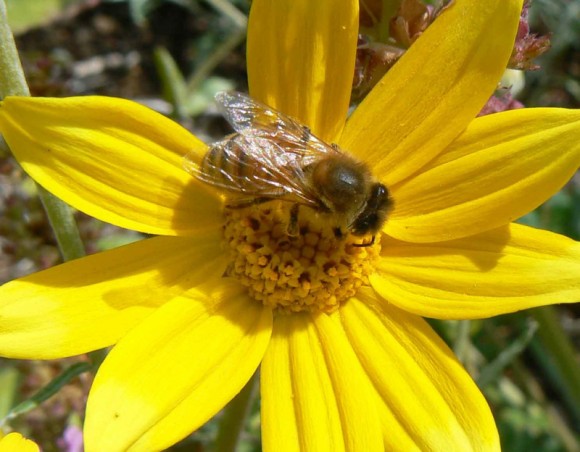Langara College established a small apiary in May of 2014. There were three main reasons to bring honey bees to the campus: educational, environmental, and for the sheer joy of watching honey bees at work.
Educational
From an educational point of view, the workings of honey bee societies illustrate important biological concepts such as the origin and organization of social behaviour, foraging strategies, and interactions with flowering plants and other organisms. The apiary is also used in the Continuing Studies Beekeeping courses. Establishment of an apiary has also been an opportunity for Langara College to become involved in a movement to counteract the serious decline of pollinating insects. Loss of natural habitat has caused a decline of native pollinator species, and the introduction of parasitic mites and the emergence of colony collapse disorder have caused huge losses of commercial and hobby honey bee colonies.
Environmental
As part of their goal to help make Vancouver one of the world’s most sustainable cities, city council encourages beekeeping in urban areas: “urban beekeeping is an excellent way to improve pollination for plants in backyard, community, and public gardens, which leads to better vegetable production.” The apiary could be considered an extension of the city’s ‘pollinator trail’, a project that provides a swath of forage and nest sites for bees that runs through central Vancouver.


